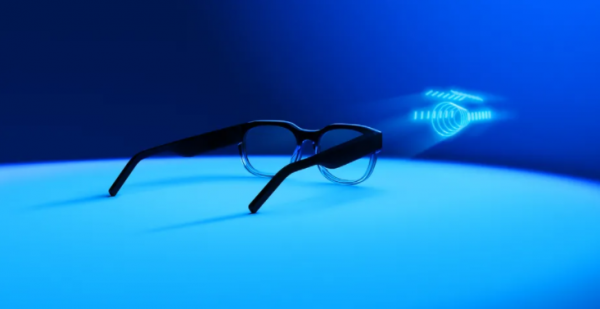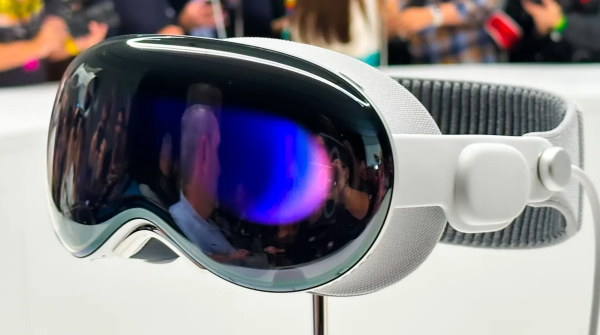Google’s AR Hardware Development Plans Plagued With Challenges
A recent report brings to attention the challenges Google has encountered in its AR hardware development.
Seven individuals who are either current or former employees, well-versed in Google’s augmented reality endeavors, have expressed their dissatisfaction with the management’s approach to the project in discussions with Business Insider.

“They are dabbling,” remarked an insider regarding Google’s ventures into AR projects who went ahead to express doubt on whether Google could achieve industry leadership in this domain if their commitment level in the technology is still confined to “dabbling”.
The report outlines the trajectory of AR hardware development and portrays a tumultuous scenario characterized by project cancellations, frequent shifts in direction, and high-profile departures from the team.
Frequent Changes Have Created Frustrations
As per the report, Google is actively working on two categories of devices. The first involves augmented reality glasses, originally referred to as “Project Iris” before being discontinued in early 2023. The second pertains to a mixed reality headset named “Project Moohan,” which bears similarities to the Apple Vision Pro.
In 2020, Google began building its dedicated team for Project Iris. In the same year, Google purchased North, a startup actively engaged in crafting smart glasses featuring a heads-up display (HUD). Google’s vision encompassed the creation of augmented reality glasses designed to seamlessly integrate applications such as Google Maps and Google Lens. In parallel, the company embarked on the development of two distinct AR chips named Alius and Alexandrite.
However, the project allegedly encountered technical challenges. The team shifted their focus from conventional glasses as the intended form factor to sunglasses and then reverted back once more.
During the May 2022 I/O conference, Google offered a glimpse of smart glasses capable of real-time text translation. Regrettably, the concept was soon discarded, according to the report. Those familiar with the matter divulged that the project underwent frequent changes every six months, leading to significant shifts in direction. The individuals added that Google “consistently aimed for a slightly different product.”
Early this year, Project Iris along with the AR chip advancement were terminated. Not long after, Clay Bavor, a longstanding figure in Google’s AR and VR endeavors, departed from the company, inducing a sense of disorder within the AR division. Subsequently, in July, Mark Lucovsky, who had been spearheading the creation of an AR operating system at Google, also left. He attributed his departure to Google’s “unstable commitment and vision” in the AR project. In a Twitter response to the Business Insider article, Lucovsky posted, “I certainly don’t yearn for the tumultuous atmosphere.”
Moving forward, I am eager to explore opportunities that allow me to further advance Augmented Reality technology and its intersection with generative AI. I approach the next chapter with enthusiasm and anticipation for the exciting possibilities that lie ahead.
— mark lucovsky (@marklucovsky) July 10, 2023
However, these challenges shouldn’t be interpreted as a complete abandonment of Google’s pursuit of AR glasses. According to the report, the company has established a fresh team tasked with the development of monocular (referred to as “Betty”) and binocular (codenamed “Barry”) AR glasses. Simultaneously, an operating system is being developed, with the intention of licensing it in a manner reminiscent of Android.
While Google is actively seeking a hardware collaborator (potentially Samsung) to actualize the AR glasses, any potential release wouldn’t occur before 2025. Additionally, Google is internally engaged in the development of other AR hardware, which could pave the way for commonplace AR headsets in the future, as mentioned in the report.
A Convoluted Partnership With Samsung
The next category of device that Google is presently dedicated to is a mixed-reality headset referred to as “Project Moohan.” As per the report, the emergence of rumors about Apple’s potential launch of a similar device has sparked apprehensions within Google’s leadership.
In a collaborative effort, Google joined forces with its long-term partner Samsung to develop a competitive offering. Under this arrangement, Samsung would contribute the hardware aspect, while Google would handle the operating system part. Nevertheless, the partnership appears to be generating internal challenges, as mentioned in reports.
Google was informed by Samsung that it preferred to keep the technological details of the project exclusive to prevent other hardware teams involved in Google AR products from gaining access. Samsung’s concern stemmed from the possibility of these teams developing rival products using the shared information. This complication has led to challenges in the development of Project Iris. An individual familiar with the project expressed, “It’s a puzzling task to craft glasses without triggering concerns from Samsung.”

This arrangement also implied that Samsung would exert a greater influence over the product features of Project Moohan, according to the report. In July, rumors emerged indicating that Samsung had postponed the headset’s launch and was considering a comprehensive redesign, driven by concerns about competing against the Vision Pro. Nevertheless, even if the device were to be unveiled in the summer of 2024, it was noted by one source that it would still fall short of matching Apple’s headset capabilities.
https://virtualrealitytimes.com/2023/08/23/googles-ar-hardware-development-plans-plagued-with-challenges/https://virtualrealitytimes.com/wp-content/uploads/2022/01/North-Focals-smart-glasses-600x309.pnghttps://virtualrealitytimes.com/wp-content/uploads/2022/01/North-Focals-smart-glasses-150x90.pngUncategorizedA recent report brings to attention the challenges Google has encountered in its AR hardware development. Seven individuals who are either current or former employees, well-versed in Google's augmented reality endeavors, have expressed their dissatisfaction with the management’s approach to the project in discussions with Business Insider. 'They are dabbling,' remarked...Rob GrantRob Grant[email protected]AuthorVirtual Reality Times - Metaverse & VR
